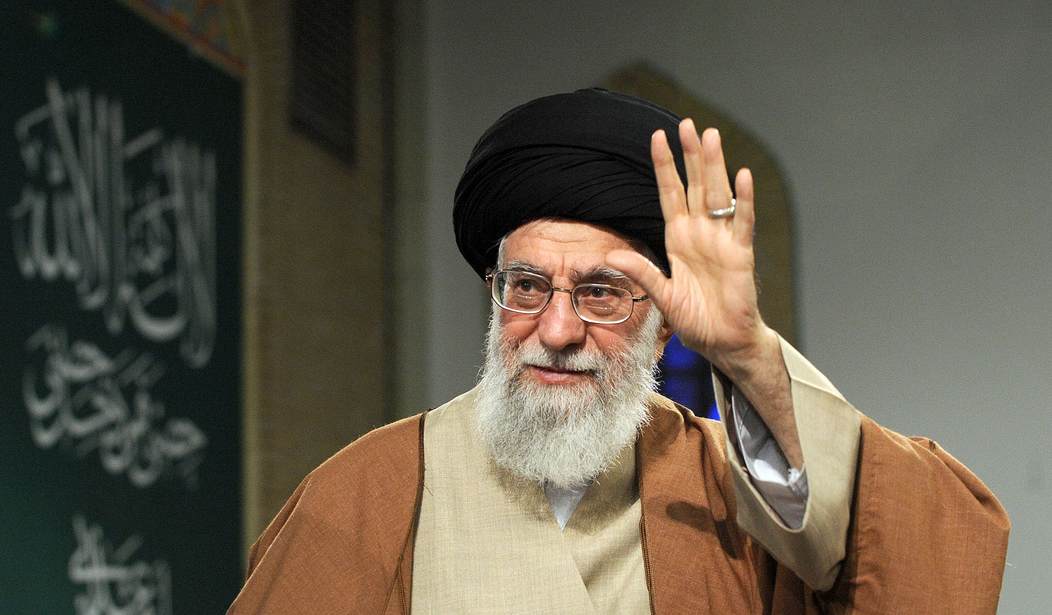WASHINGTON — Iran has not freed up $100 billion in frozen assets as expected under the 2015 nuclear deal and the country’s economic frustrations are now playing out in the streets of Tehran, a former Treasury official told Congress on Wednesday.
“This windfall that many predicted has not come to Iran,” Treasury’s former acting undersecretary for Terrorism and Financial Intelligence Adam Szubin, who served under Bush, Obama and briefly Trump, told the House Foreign Affairs Committee. “There never were $100 billion, $150 billion in assets. That’s a make-believe number. Iran’s true benefit from the deal was significant, but it was nowhere near enough to get them out of the hole they were in, a hole that they, by the way, dug for themselves.”
Tehran has been under duress recently as the regime grapples with rare anti-government protests in which thousands have been arrested. Szubin cautioned against the U.S. walking away from the nuclear deal entirely, saying that the Obama-era pact has extended Iran’s nuclear breakout time from two to three months to more than a year.
President Trump, who has described the Joint Comprehensive Plan of Action as the “worst deal ever,” told Congress in October that the agreement is not in the country’s national security interest. That month, the president opted not to certify the deal, and the White House is approaching another round of deadlines in keeping the agreement alive.
The deal was struck in 2015, with Iran promising to significantly curb operations at the country’s nuclear facilities in return for the lifting of international oil and banking sanctions. Some experts have said that Iran has repeatedly cheated on the deal by denying international nuclear inspectors access to military installations. Estimates showed anywhere from $100 billion to $150 billion in sanctions relief and unfrozen assets for Iran.
During Wednesday’s hearing, Rep. Lee Zeldin (R-N.Y.) took issue with Szubin’s assessment that Iran is meeting all material obligations under the deal. Lee pointed to reports that Iran has been stockpiling illegal amounts of heavy water, acquiring illegal technology and material like carbon fiber and is blocking inspectors at military sites and universities.
“There’s a lot of people coming before Congress and the American public and saying that Iran is abiding by its own end of the nuclear deal, and it’s really important that all of these violations of the letter of the deal are factored in before making that statement,” Zeldin said.
Lawmakers, officials and experts agreed Wednesday that sanctions are a very useful tool in ensuring national security and foreign policy objectives. Rep. Brad Sherman (D-Calif.) argued that sanctions have worked better in the past 50 years than military intervention, as evidenced by South Africa and Iran.
Szubin and another former Treasury official, Juan C. Zarate, who served as secretary for Terrorist Financing and Financial Crimes, told lawmakers that Treasury needs greater resources in order to verify accountability and effectiveness of the sanctions.
“We don’t have enough people or resources at Treasury,” Zarate said. “This is the war room for how we deploy these strategies that are now essential to our national security. Let’s resource it in a way that is appropriate.”
Szubin said that when sitting around the National Security Council table, Treasury was seen as the “little brother,” and yet the department has been asked increasingly to do more and more in terms of sanctions policy.
Congress in August enacted new sanctions against Iran, Russia and North Korea, and the House has also passed new sanctions to combat Hezbollah drug trafficking and other activities meant to fund terror efforts.
Zarate said that Treasury should have task forces devoted specifically for efforts against those three countries, calling for an all-out, “maximalist” approach to sanctions policy.
“These days, it’s really tough to think about a national security or foreign policy threat where we’re not using sanctions,” Szubin said.
Chairman Ed Royce (R-Calif.) responded: “I don’t think there’s sufficient comprehension in the other agencies of government, in terms of the lynchpin here. And that’s one of the things I’d like to drive through this hearing today, and I appreciate your all calling attention to this.”









Join the conversation as a VIP Member